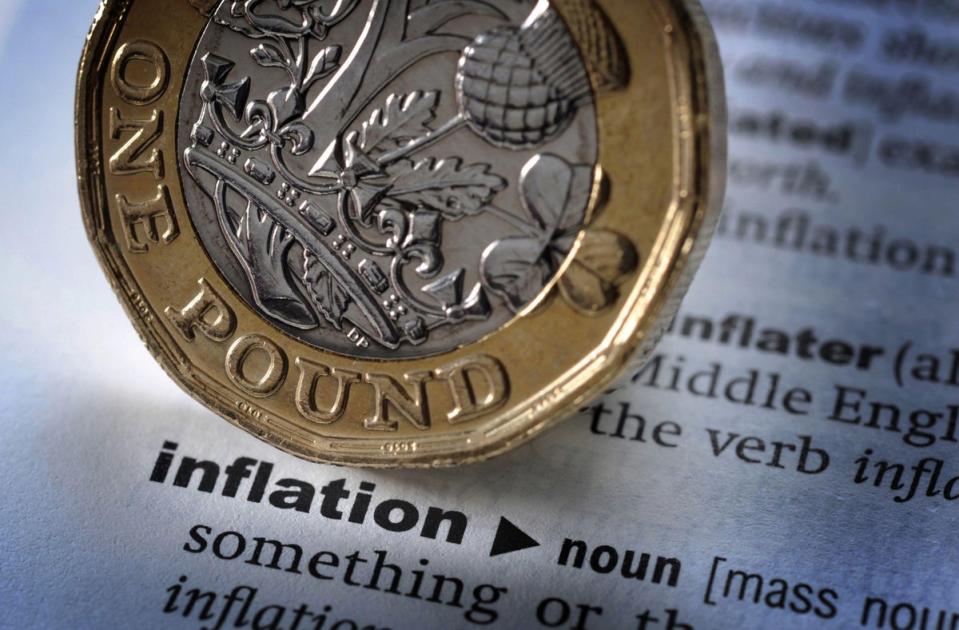Interest payments on government borrowing soar to May record as inflation rises

Rocketing inflation led to interest payments on government debt jumping to a record £7.6 billion last month and pushed borrowing up to a higher-than-expected £14 billion, according to official figures.
The Office for National Statistics (ONS) said government borrowing was £4 billion less than in May last year, but was still the third-highest May borrowing since monthly records began in 1993 and £8.5 billion more than in May 2019, before the pandemic struck.
The data revealed that surging levels of inflation sent interest payments on government debt to a record-breaking £7.6 billion – £3.1 billion higher than a year earlier.
Public sector net borrowing excluding public sector banks was £14.0 billion in May 2022, the third-highest May borrowing since monthly records began in 1993.
This was £4.0 billion down on May 2021 but £8.5 billion up on May 2019, before #COVID19 https://t.co/59hUfl8kLE pic.twitter.com/dVTWxtPgEm— Office for National Statistics (ONS) (@ONS) June 23, 2022
It is the third highest debt interest payment in any month and the highest seen in any May since records began in 1993.
The ONS said the jump in UK debt interest payments is down to the recent surge in the Retail Prices Index (RPI) measure of inflation, which determines payouts on index-linked gilts.
So far this financial year, debt interest payments have totalled £14.1 billion, up £4.7 billion year on year, the ONS said.
But the worst is yet to come, with the Office for Budget Responsibility (OBR) forecasting that government debt interest payments will leap to £19.7 billion in June – the biggest on record by far – due to April’s eye-watering increase in inflation.
Public sector net debt excluding public sector banks was £2,363.2 billion at the end of May 2022, or around 95.8% of GDP.
This is up £170.1 billion, or 0.5 percentage points of GDP, on May 2021 https://t.co/59hUfl8kLE pic.twitter.com/3jCpNSXgrF— Office for National Statistics (ONS) (@ONS) June 23, 2022
Chancellor Rishi Sunak said: “Rising inflation and increasing debt interest costs pose a challenge for the public finances, as they do for family budgets.
“That is why we are taking a balanced approach – using our fiscal firepower to provide targeted help with the cost of living while remaining on track to get debt down.”
Inflation hit a 40-year high of 9% in April and official data on Wednesday showed it increased again in May, to 9.1%.
The OBR estimates that the mammoth debt interest payments will send government borrowing up to £22.3 billion in June, up from £18.8 billion a year earlier.
It is also forecasting that debt interest payments will cost central government £87.2 billion over the financial year ending March 2023 as the impact of sky-high inflation ricochets through the economy.
The latest public finances data showed that borrowing, excluding state-owned banks, has so far hit £35.9 billion in the financial year beginning April – £6.4 billion less than in the same period last year, but still £19.8 billion more compared with two years ago.
But the ONS has revised down borrowing for the previous two financial years – by £7.8 billion to £309.6 billion in 2020-21 and by £900 million to £143.7 billion in 2021-22.
Public sector net debt, excluding state-owned banks, was £2.36 trillion at the end of May, or around 95.8% of gross domestic product (GDP).
Michal Stelmach, senior economist at KPMG UK, warned that Mr Sunak’s aims to cut government debt this year will be a “long shot”, due to the impact of the cost-of-living crisis on economic growth and support measures launched to help reduce its impact.
He said: “We expect borrowing to overshoot the OBR’s March forecast by around £20 billion this year, largely on account of higher spending and weaker economic growth.”
Samuel Tombs, chief UK economist at Pantheon Macroeconomics, said: “In addition, the OBR’s full-year forecast for debt interest payments looks too low by about £15 billion, if we incorporate our latest forecast for RPI inflation.”

 Yahoo Finance
Yahoo Finance 